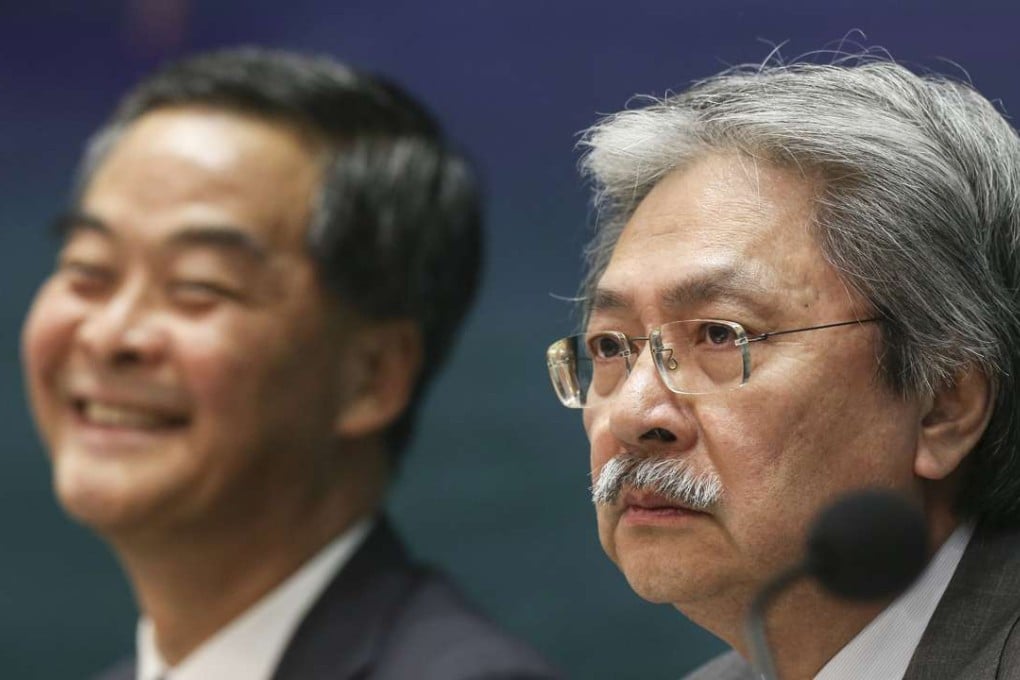Questions and answers: what Hong Kong’s Leung Chun-ying and John Tsang told the press

During a tension-filled press conference where the focus should have been on the controversial Wang Chau project, the media spotlight instead shone brightly on the two top men in the city’s government – Chief Executive Leung Chun-ying and Financial Secretary John Tsang Chun-wah, who are tipped to run in next year’s election for the top post.
The two men sat side by side, most of the time remaining composed as they clarified their roles in the political saga.
The press conference was intended to be a show of unity. But it was noticeable that Leung and Tsang did not exchange any glances throughout the hour-long session.
As Leung was giving his opening remark, Tsang was seen scanning the press room as cameras flashed intermittently. While Leung smiled on several occasions and appeared more relaxed as the session continued, Tsang did not appear comfortable as if he did not want to be there.
How the two top officials responded to reporters’ questions not only shed light on their roles in the Wang Chau saga, but also offered the public an insight into how they evaded questions.
Q: The chief executive maintains he has not backed down in the face of rural leaders. But what you said just now showed that the project was scaled back because of their opposition. Was it because it was related to the interest of the rural force and private developers? Leung: It’s completely not the case. If we wanted to avoid [developing to protect] the interest of certain people or a certain sector, we would not be able to see that while property prices in the main Asia-Pacific markets had risen 5 per cent, Hong Kong’s had dropped 8 per cent. We boost land supply so that home prices and rents get lower. Whether some people would therefore dislike me, you can answer it yourself.
Did you in any way get involved in informal negotiations with rural villagers?